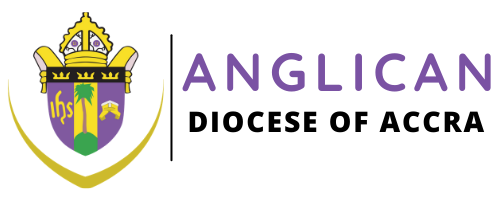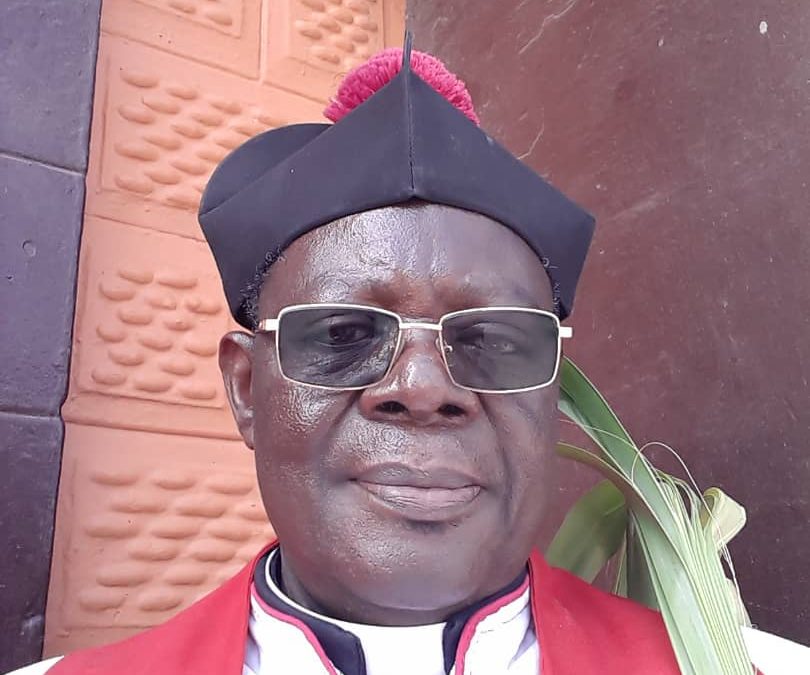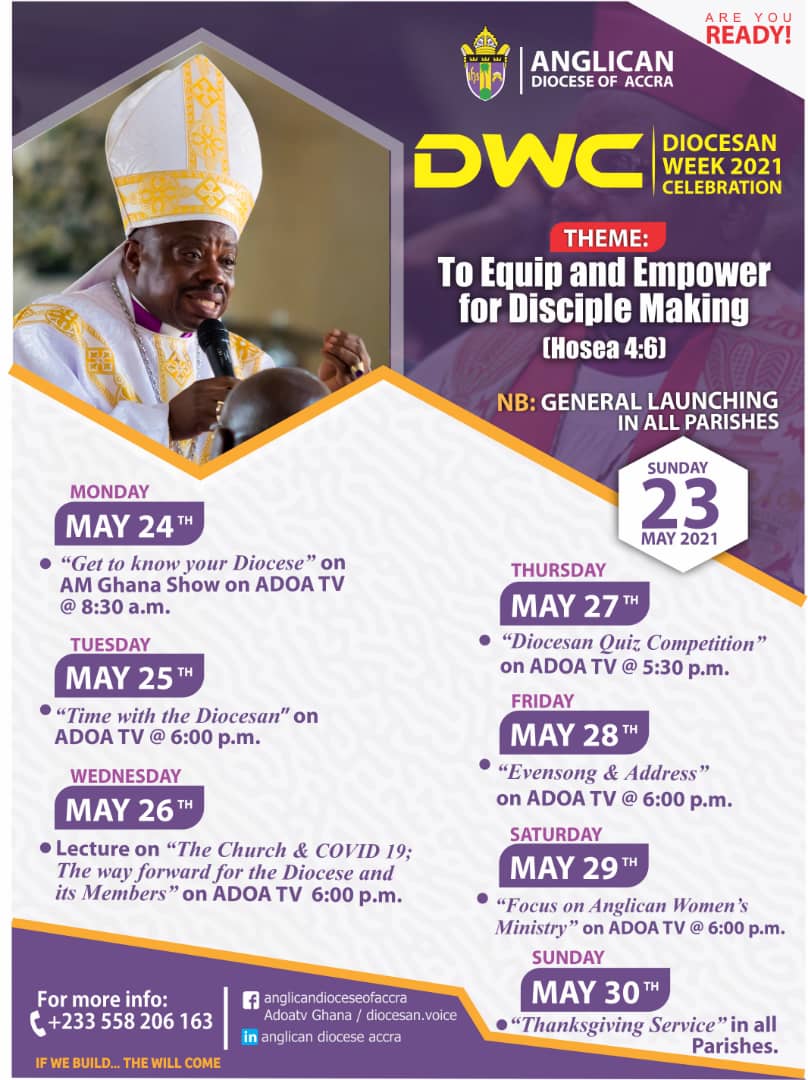The Church’s Response to the Coronavirus Pandemic
Author: Venerable Dr. Joseph Lankwei Lamptey, Archdeacon of Accra East & Parish Priest, St. Barnabas Anglican Church, Osu
Easter, which marks the Resurrection of Our Lord Jesus Christ is usually celebrated with pomp and splendor by the Church. It is the sine qua non of the preaching of the Gospel. As St. Paul puts it, Jews demand signs and Greeks look for wisdom but we preach Christ crucified: a stumbling block to the Jews and foolishness to the Gentiles (1Corinthinas 1. 22& 23). Thus the Christian message revolves around the fact that Jesus died and rose again for the salvation of humankind. As the basis of the Christian faith, Easter is held to be a FEAST characterized by liturgical services that uplift the soul. In these services the Church gives thanks to God for our salvation wrought in the person and ministry of Jesus Christ.
In the Acts of the Apostles, the primacy of Easter is shown in how the early Church gathered in homes to break bread on the first day of the week (Acts 20. 7 et. al). Here, we see in Bible times a paradigm shift from the Jewish Sabbath (Saturday) to the Christian Sabbath (Sunday). Thus the celebration of the first day of the week is a pointer to the Resurrection faith which Christians hold dear to their hearts. The hymn writer J. M. Neale puts it more succinctly:
Again the Lord’s own day is here,
The day to Christian people dear,
As week by week, it bids them tell
How JESUS rose from death and hell.
Yet this Easter in the year of our Lord 2020 could not be celebrated as usual. In the wake of the coronavirus pandemic Christians were unable to gather in churches to celebrate the risen Lord amidst shouts of affirmation- Alleluia! He’s risen indeed Alleluia! As I write this piece a partial lockdown of Accra, Tema, Kasoa, Kumasi, and Obuasi has just been lifted. These places are reported to be epicenters of the virus. But the ban on public gathering is still in force. The reason for the lockdown and the ban on public gathering is obvious — to curb the upsurge of the pandemic. To date, the nation contends with over 1500 confirmed cases of persons infected with the virus.
Aside from the lockdown, public education on social distancing, wearing of face masks and frequent washing of hands with soap under running water as well as the use of sanitizers is ongoing. There is general premonition that if these measures were not taken the virus would spread with far reaching consequences. Schools have closed down and students have been sent home, raising serious implications for academic performance. The situation has also affected considerable number of workers in all sectors of the economy. The reason for this is obvious: they have to stay home to observe the social isolation protocol. As was aptly described by the President of the Republic, Nana Addo Dankwa Akufo-Addo “We are not in ordinary times.” Everything possible must be done to stop the spread of the virus in order to save precious human lives. In the iconic words of the President, “We know what to do to bring our economy back to life. What we do not know how to do is to bring back life.”
In this article, I shall attempt in all humility to articulate the response of the Diocese of Accra to the corona crisis on hand. I address three prong areas as follows:
- The Diocese’s cooperation with measures taken by the government to stem the tide of the virus.
- Corporate social responsibility of the Diocese.
- Spiritual as well as the material welfare of the faithful now isolated from normal church activities as a result of the pandemic.
The Diocese’s cooperation with Government on Preventive Measures
As soon as the President announced to the nation the various protocols for stopping the spread of the virus, episcopal directives went into full gear. The Rt. Revd. Dr. Daniel S. M. Torto, Bishop of Accra in consultation with diocesan medicaladvisors issued an encyclical to the Church calling the faithful to adhere strictly to the presidential guidelines. The call by the government for the closing down of churches in order to contain the corona crisis hit everyone like a ton of bricks. The thought that Lenten services would be disrupted wasn’t pleasant at all. Similarly, the fear that Easter festivities would be affected was also an unfortunate development.
But a responsible Church must heed the call of the civil authority in a situation that demands discipline and “war mentality.” After all, Scripture enjoins us to obey rulers that are set over us. Paul writes: Let everyone be subject to the governing authorities, for there is no authority except that which God has established (Roman 13. 1).
The Church has prayed and continues to pray for divine intervention in the coronavirus pandemic. Inspired by episcopal leadership, we are happy to cooperate with government in order to bring the pandemic under control. Easter was not celebrated this year with the usual elaborate liturgical practices but with God on our side, there are many Easters ahead of us to celebrate. We must continue to support the Government to stamp out corona in order to avert suffering and death.
Under diocesan guidelines Parishes and congregations educate people through the social media platforms available to various church groups. This effort is well-coordinated by the Parish Church Councils (PCCs) to ensure that the Bishop’s directives on the protocols outlined by the government are strictly adhered to. This development feeds into Pillar 3 of diocesan vision– Growth based on integrity and discipline.
Corporate Social Responsibility
As has been indicated above, the Diocese is playing the advocacy role of encouraging the faithful to abide by the Covid- 19 protocols. Aside from this gesture we have demonstrated that as a Christian organization, we have a duty to meet the spiritual as well as the physical needs of people. Bishop Daniel Torto acting on behalf of IpG (Internal Province of Ghana) and the Diocese of Accra presented a sum of GHS 60,000 to the Covid- 19 National Trust Fund instituted by the Government. It is also noteworthy that the Diocese made donations to the Ghana Prisons Service and some charitable institutions. Again, these gestures are consistent with Diocesan vision of making a positive impact on society.
Spiritual & Physical Welfare of the Faithful
Anglican spirituality is marked by corporate worship. As church historians say, “Anglicans do theology by the ringing of bells” that signal people to gather for worship. But Covid- 19 has robbed us of gathering in our churches for worship. Without acquiescing to the situation, the Diocese introduced a virtual worship protocol, thanks to the yeoman job being done by AdoaTV. Services of the Church from Passion Sunday to date have been streamed live on television and other social media such as facebook and youtube. Comments by viewers across the world suggest that people are appreciative of the quality of the liturgical services. It must be noted that the services are held either in the Bishop’s Chapel or in the Cathedral without a congregation. An organist assisted by three or four choristers remain in the background to provide sacred music. At any particular service a handful of officiating clergy deployed take cognizance of the social distancing protocol. For example, Easter Day Eucharist was concelebrated by the Bishop, the Dean and the Archdeacons adhering strictly to the Covid- 19 protocols.
I now turn to the Diocese’s response to the physical needs of the faithful. Colin Morris, a great thinker who occupied prominent positions in British Methodism once said: “Your theology is what you are when the talking stops and the action starts.” Tons of prayers continue to be offered for divine intervention in the Covid- 19 scourge. These prayers translate into practical support to meet the physical needs of parishioners. So in these trying times Parishes undertake to donate food items to the faithful in order to ensure their welfare. This kind gesture can be described as theology in action consistent with Scripture, for St James declares: Suppose a brother or a sister is without clothes and daily food. If one of you says to them, “Go in peace; keep warm and well fed,” but does nothing about their physical needs, what good is it? In the same way, faith by itself, if it is not accompanied by action, is dead (James 2. 16 & 17).
Beyond the efforts of Parishes at taking care of the physical needs of parishioners, the Diocese itself is sourcing funds from abroad to be given monthly to a maximum of five persons in the household of parishioners. Now this is heartwarming as a large number of parishioners across the Diocese have subscribed to this project.
Conclusion
Nobody would pray that Easter should be celebrated again the way it was done this year as a result of Covid- 19. But it is plausible to suggest that Covid- 19, taking a toll on our spirituality has taught us many positive lessons. As it is evident in all human situations, challenges present opportunities for sober reflections and growth. We are growing out of Covid- 19 with a better sense of charity and appreciation of true neighborliness. We now pray for each other fervently and exchange devotional messages on social media more frequently. Knowing that we are all vulnerable because the disease is no respecter of persons, the axiom of the times is this: if you have two face masks you give one to your neighbour. These are positive elements in behaviour toward each other in a world ably described as a global village. Since we are in this pandemic together, we cannot subscribe to the philosophical proposition of Rene Descartes, “I think therefore I am.” Rather, we should say as reported by Archbishop Desmond Tutu of South Africa, “I am human because I belong, I participate, I share.” Against this background, we can prayerfully say in the words of the President of the Republic, “This too shall pass.”


